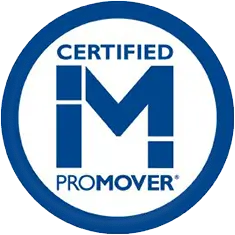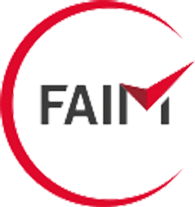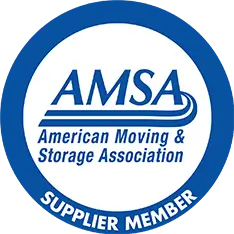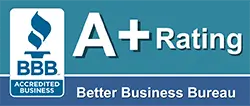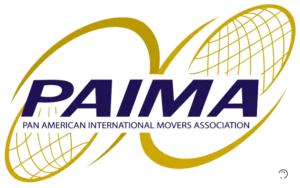Relocating internationally can be an exciting yet daunting experience. One of the most critical aspects of this transition is navigating the customs paperwork, which is crucial for ensuring the smooth entry of your belongings into your new country. Understanding how to handle this paperwork can save you time, money, and stress. In this article, we will explore the essentials of customs paperwork and provide practical tips for a successful international move.
Understanding the Basics of Customs Paperwork
Customs paperwork consists of various forms and documents required when moving goods across international borders. These documents serve to inform customs authorities about what you are bringing into the country, enabling them to assess duties, taxes, and regulations that may apply. This paperwork can vary significantly from one country to another, reflecting the unique legal and regulatory frameworks that govern international trade.
The Importance of Customs Paperwork in International Relocation
Properly managing customs paperwork is vital for preventing delays in your relocation process. Missing or inaccurately filled out forms can lead to increased scrutiny, potential fines, or even confiscation of your belongings. Understanding the importance of these documents can help you prioritize them during your move. Additionally, having your paperwork in order can facilitate smoother communication with customs officials, making the entire process less stressful.
Moreover, customs regulations are put in place to protect countries from illegal imports or health hazards. Thus, providing accurate information through customs paperwork contributes to global safety and compliance with each country’s laws. It is also worth noting that customs authorities may conduct random inspections, and having all your documentation readily available can expedite these checks, allowing you to proceed with your move without unnecessary interruptions.
Key Terms and Definitions in Customs Paperwork
Familiarizing yourself with essential terms can make filling out customs paperwork much easier. Some key terms include:
- Manifest: This document lists all items being shipped, along with their values.
- Duties: Taxes levied on goods imported into a country.
- Declaration: A statement made by the individual or company about the items being imported or exported.
- Tariff: A schedule of rates used to calculate duties based on the item type.
Understanding these terms can help you navigate the forms more effectively. Additionally, it is beneficial to be aware of specific exemptions or allowances that may apply to your situation. For instance, some countries allow certain personal items to be imported duty-free if they meet specific criteria, such as being used items or falling under a certain value threshold. This knowledge can not only save you money but also streamline your customs experience.
Furthermore, each country may have its own set of prohibited or restricted items that cannot be imported. Being aware of these regulations ahead of time can prevent potential headaches during your relocation. For example, many countries have strict rules regarding the importation of food, plants, and animal products, which can lead to significant penalties if not adhered to. Therefore, thorough research and preparation are essential steps in ensuring a successful transition across borders.
Preparing Your Customs Paperwork
Preparation is key when it comes to customs paperwork. Having the right documents ready before your move is crucial for a seamless transition. An organized approach will increase your chances of success and reduce the likelihood of facing issues during customs clearance.
Gathering Necessary Documents for Customs
To prepare your customs paperwork, you first need to gather the necessary documents. Essentials may include:
- Passport and visa documentation.
- A detailed inventory of all items you’re bringing into the new country.
- Proof of residence, like a lease agreement or purchase contract.
- Bill of lading or air waybill, depending on your mode of transport.
Each item on this list plays a significant role in the customs process, so ensure you have them readily available. Additionally, it may be beneficial to create copies of all documents, as this can serve as a backup in case any original documents are misplaced or lost during transit. Furthermore, some countries may require specific forms or additional documentation based on the nature of your move, such as pet import permits or health certificates for certain items. Researching these requirements ahead of time can save you from last-minute scrambles.
Filling Out Customs Forms Correctly
Once you have gathered your documents, the next step is to fill out your customs forms accurately. Be clear and precise when providing information. Inaccuracies can lead to severe delays or penalties. It’s advisable to type rather than write by hand to ensure readability.
Don’t forget to double-check all information before submission. Minor mistakes can be time-consuming to correct and may lead to unnecessary complications. In addition to verifying your entries, consider seeking assistance from a customs broker or a relocation expert who can provide guidance tailored to your specific situation. These professionals can help you navigate complex regulations and ensure that all your paperwork is in order, which can be particularly beneficial if you are moving to a country with stringent customs laws. Their expertise can not only expedite the process but also give you peace of mind as you embark on this new chapter of your life.
Navigating Different Country Customs Regulations
Every country has its own customs regulations, which means understanding the specific rules of your destination is very important. This will help you comply with legal requirements and avoid surprises when your shipment arrives.
Researching Country-Specific Customs Rules
Research the customs regulations specific to the country you’re moving to. Look for resources from reputable government websites or international relocation databases that detail the procedures and documentation requirements. Some countries have strict regulations regarding certain items, such as food, plants, or electronics.
Additionally, consider joining expat forums or social media groups to get insights from others who have relocated to the same country. Their firsthand experiences can provide valuable information about navigating customs regulations.
Adapting to Changes in Customs Regulations
Customs regulations can change frequently due to policy updates, trade agreements, or changing international relations. Keep an eye on news and updates related to customs policies in your destination country.
Subscribing to alerts from customs authorities or relevant agencies can help you stay informed of any changes that may affect your relocation.
Dealing with Common Challenges in Customs Paperwork
Despite thorough planning, you may still face common challenges when handling customs paperwork. Recognizing these obstacles ahead of time can better prepare you for a smooth relocation experience.
Overcoming Language Barriers in Customs Paperwork
If you’re moving to a country where a different language is spoken, you may encounter language barriers when filling out customs paperwork. It’s helpful to use translation tools or services to convert important documents into the local language.
Consider enlisting local help or hiring a language professional if you’re uncertain about your ability to navigate the paperwork. Being clear and understandable is crucial in this process.
Addressing Errors and Inconsistencies in Paperwork
Even with the best preparation, errors can occur. If you identify an inconsistency after submission, address it immediately by contacting the appropriate customs office. Provide clear explanations and any relevant documentation to support your claim for corrections.
Being proactive can prevent complications and keep your relocation on track.
Hiring Professionals to Handle Customs Paperwork
If the customs paperwork seems overwhelming, hiring a professional can significantly simplify the process. Customs brokers and freight forwarders are experienced in handling these types of paperwork.
When to Consider Hiring a Customs Broker
Consider hiring a customs broker if your shipment contains high-value items or if you’re uncertain about the paperwork’s accuracy. Brokers can provide guidance and ensure that everything is filed correctly according to local customs requirements.
Additionally, if your move involves a complex set of regulations or if you’re relocating to a country with stringent customs controls, enlisting professional help may be wise.
Selecting a Reliable Customs Broker
When selecting a customs broker, research is essential. Look for a broker who has ample experience in international relocations and a good reputation. Reading reviews or seeking recommendations from those who have moved recently can provide valuable insights.
Once you’ve identified potential brokers, reach out to them for preliminary discussions about their services, fees, and approach to handling paperwork. A well-chosen broker can make a significant difference in managing your customs responsibilities efficiently.
In conclusion, handling customs paperwork for an international relocation is a detailed but manageable process. By understanding the basics, preparing thoroughly, and considering professional help if needed, you can turn a daunting task into a streamlined portion of your relocation experience. Good luck with your move!










